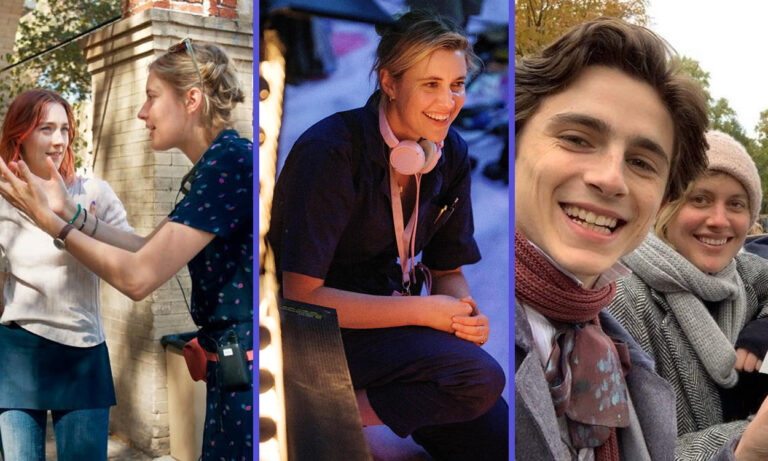The Guardian claims Greta Gerwig sold her indie soul by directing Barbie

Surprise surprise, I have beef with The Guardian again. Just as I was beginning to move on from the whole ‘beige-fluencers’ debacle, it had to go and publish another article that just really ground my gears. And this time, it feels even more personal, because it went after none other than feminist soothsayer and Barbie director, Greta Gerwig.
In a piece titled Has Barbie killed the indie director? Why credible film-makers are selling out, writer Caspar Salmon delves into the professional trajectory of Gerwig and what led her to diverge from the indie scene into mainstream big-budget cinema.
I have two major issues with this article. The first is the use of the term “selling out,” because I’m not sure how Gerwig’s lifelong devotion to telling the stories of women could translate to her compromising her integrity. Secondly, doesn’t the process of growing as a director and becoming more experienced directly parallel with the idea of moving from indie films to big-budget ones? Why is Gerwig being criticised for something that every other major director does in their career? It’s the misogyny for me.
And I know what a lot of people might be thinking: “You can’t comment on or criticise a woman these days without being labelled as misogynistic.” But the reality of this situation is that misogyny definitely plays a role. You just have to watch the Barbie film to understand why there’s so much contention with Gerwig’s career progression.
Yes, in a way, the Little Women director is contributing to the proliferation of corporate greed and monopolisation. But where was all the fuss when Jon Favreau, Bryan Singer, and Taika Waititi left their indie roots behind for a Hollywood paycheck? And yes, the writer of the piece briefly mentions a few male directors he also puts at blame for the receding of the indie boom, but it’s pretty clear that Gerwig is queen sell-out in Salmon’s eyes.
Don’t even get me started on the entire rant the article goes on about regarding the fact that not only has Gerwig sold her soul to the conglomerates, she did it through a movie about “hypersexualised dolls.” I am in no way, shape, or form saying that Gerwig’s perception and deliverance of feminism is perfect—no one is arguing that.
However, to simplify a film which in a lot of ways captures the intricacies, beauty, frustration, pain, and joy of being a woman by instead describing it as “a film using IP (intellectual property) to make money for a toy company that sells vacuous, hypersexualised dolls” is beyond offensive.
I, along with any other lover of film, seriously enjoyed and gobbled up Gerwig’s indie days. I had a deep hyperfixation with Frances Ha from the ages of 15 to 16 and so can appreciate how it might hurt to see the screenwriter trade black and white dance sequences in a boxed up New York for a Dua Lipa-themed disco extravaganza in Barbieland. That being said, it hurts to see a woman get to the top only to be chastised for the greed of other men. Last time I checked, Gerwig wasn’t the CEO of Disney+ or Netflix.
The resounding theme littered throughout Salmon’s article is this idea of “personal responsibility.” And yes, I agree that actors and directors and all those involved within the film industry do have a sense of personal responsibility to both the audiences and each other—especially when it comes to fare wages, dividends, and diversification of content.
But what about the personal responsibility Gerwig had to use her power to create a film for women, by women? If I were a 12-year-old girl who got to go to the cinema and witness Issa Rae as president, Margot Robbie challenging a boardroom of men in suits, and America Ferrera delivering an insanely emotional and poignant speech on the realities of womanhood, I’d be pretty appreciative of that. And now, young girls will have that opportunity, because of Gerwig.
I’m a gen Zer, I’m biologically programmed to hate capitalism, corporations, and big bosses. But I’m also aware of the significant obstacles that women in the creative industry have faced in the past. According to a report by the Center for the Study of Women in Television and Film, in 2022, women comprised of only 18 per cent of directors last year. Moreover, the 2023 Ocsar’s Awards completely snubbed all women from the ‘Best Director’ category—so much for an equal society.
I’m not a film expert and I’m also not a struggling actor, so I can appreciate that there are aspects of this conversation that I will never completely understand. But I won’t ever not take umbrage withminimising the efforts and work of all those involved in Barbie just because the woman in charge is at the peak of her career.





